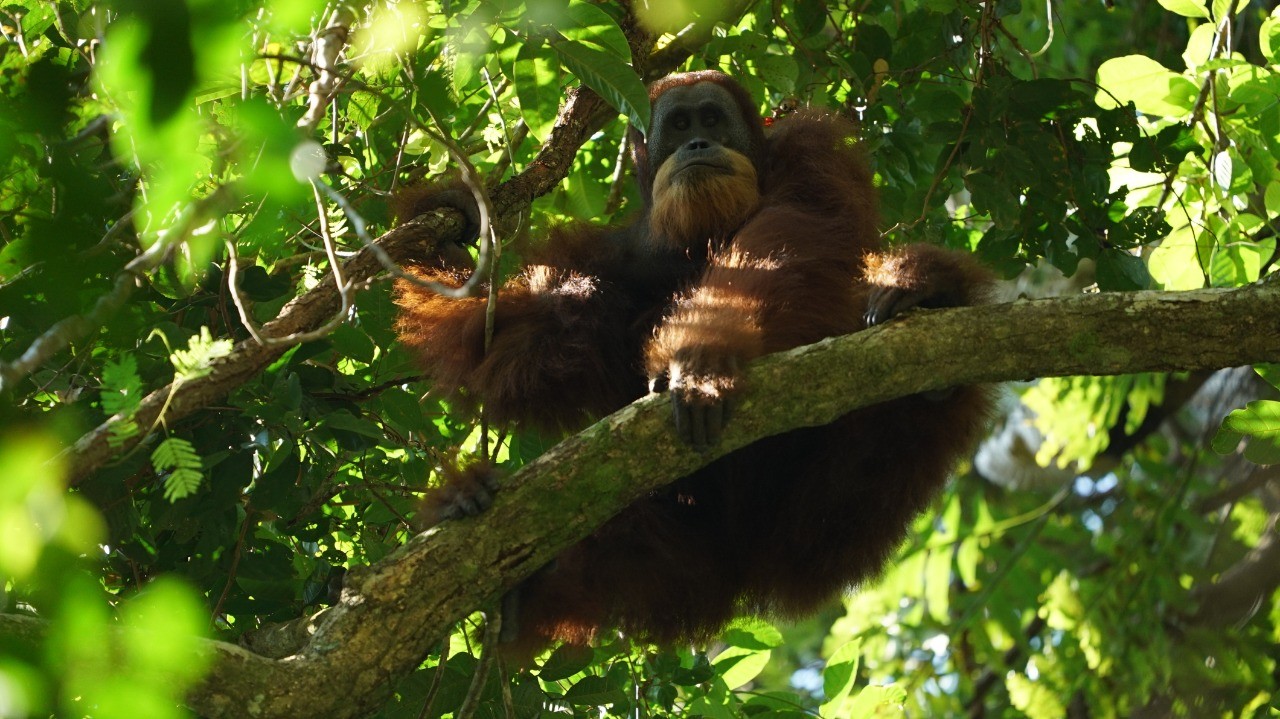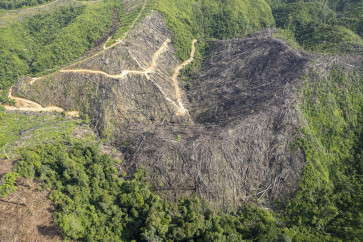Popular Reads
Top Results
Can't find what you're looking for?
View all search resultsPopular Reads
Top Results
Can't find what you're looking for?
View all search resultsMalnourished, injured Tapanuli orangutan rehabilitated and released
The orangutan was found on Sept. 9 at a community plantation in Aek Batang Paya village. It had injuries to its back, forehead, cranium and underarm.
Change text size
Gift Premium Articles
to Anyone
A
Tapanuli orangutan has been released to its natural habitat in Dolok Sibual-buali Wildlife Reserve in South Tapanuli, South Sumatra, after undergoing nearly three months of treatment for malnutrition and injuries.
On Monday, the North Sumatra Natural Resources Conservation Agency (BKSDA) released the orangutan, named Paya, from the Orangutan Rehabilitation Center (PKOS) in Sumatra where it had received intensive care.
Paya was found on Sept. 9 at a community plantation in Aek Batang Paya village. It was malnourished and had sustained injuries to its back, forehead, cranium and underarm.
Jenny Adawiyah, a vet from the Human-Orangutan Conflict Response Unit (HOCRU) medical team, said her team suspected that the injuries were the result of an assault with a sharp weapon.
Paya’s condition improved significantly after undergoing treatment at the rehabilitation center from Sept. 20 to Oct. 29, Jenny said. She added that most of the wounds on Paya’s back had healed.
Paya's weight had also increased to 44 kilograms and the orangutan had grown more active inside its cage.
North Sumatra BKSDA head Hotmauli Sianturi said Paya had been released in good condition and that the agency would continue to monitor the orangutan’s health.
He said the agency chose to release Paya in Dolok Sibual-bulai Wildlife Reserve because the environment suited the orangutan.
"The Dolok Sibual-bulai Wildlife Reserve is the home of the Tapanuli orangutan. There are 10 orangutans in this place,” Hotmauli said, “We believe that Paya will be able to adapt and make friends in this place quickly.”
He said the wildlife reserve was located about four kilometers from where Paya was first found.
According to the North Sumatra BKSDA, this was the first time a Tapanuli orangutan had been found malnourished since the species was discovered in 2017.
The BKSDA and other stakeholders are building a special corridor to connect several wildlife reserves, including Sipirok, Sibual-buali and Lubuk Raya. This will allow Tapanuli orangutans to travel more freely.
Hotmauli said he expected the corridor would slow down illegal hunting of the orangutans. (dpk)










